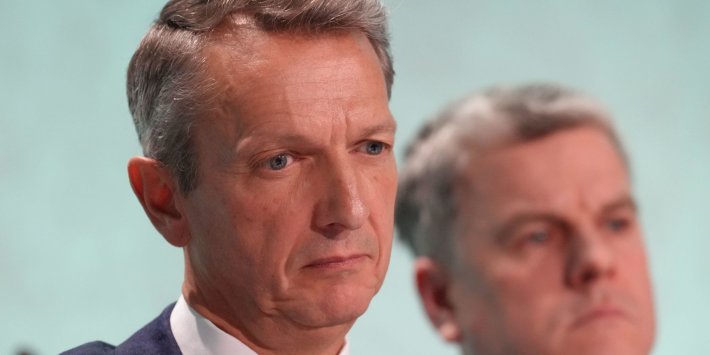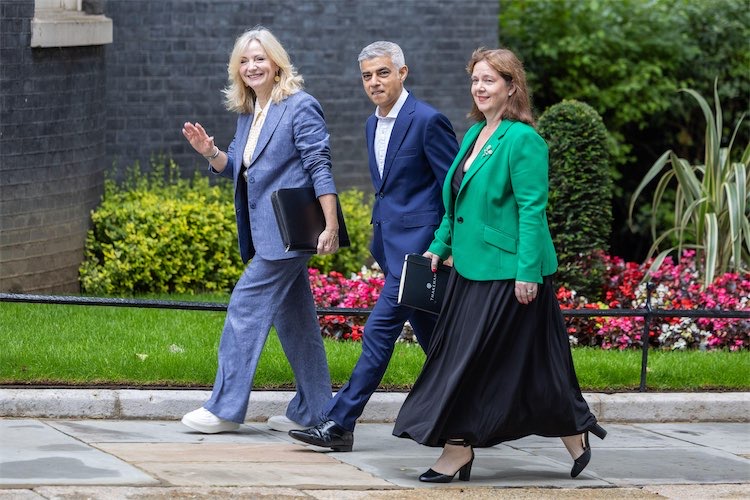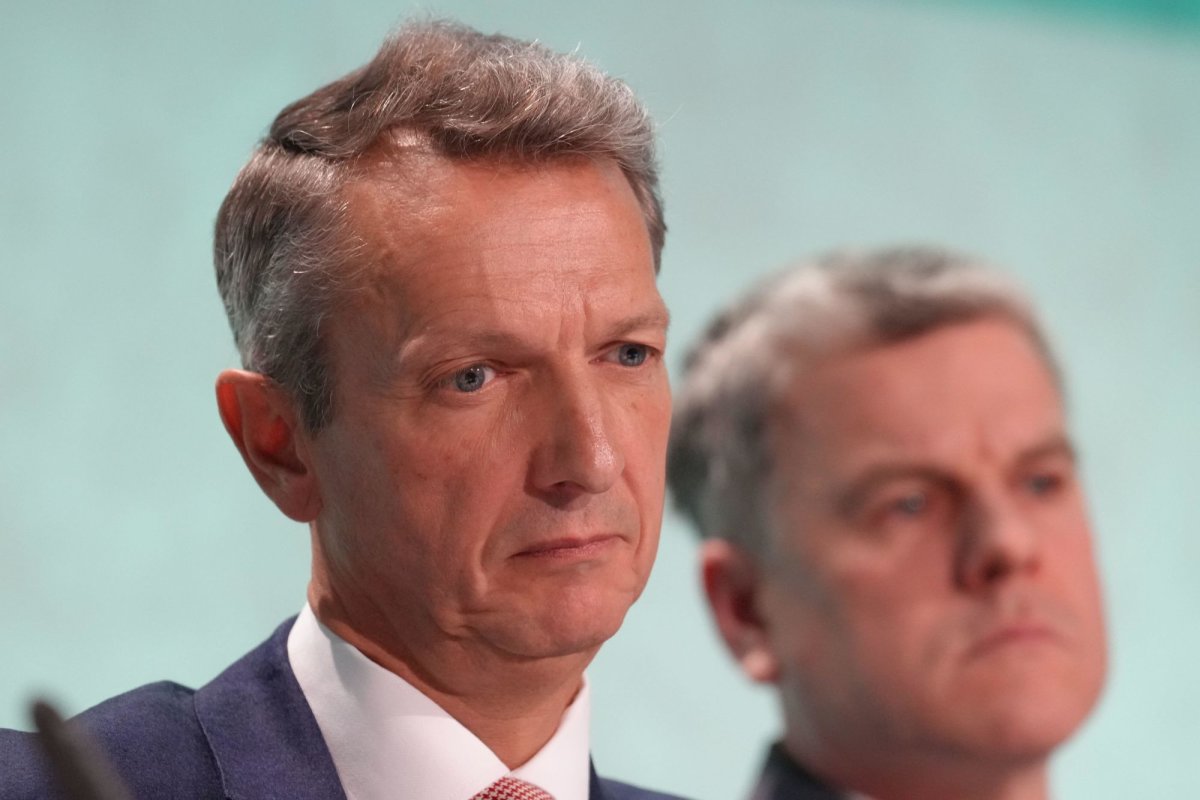
Andy Haldane was previously the Bank of England’s chief economist and held a number of senior civil servant roles in the Treasury, Cabinet Office and the Department for Levelling Up, Housing and Communities (Alamy)
5 min read19 September
Former Bank of England chief economist Andy Haldane says he is concerned that the government is getting “cold feet” about strengthening regional devolution.
Haldane, who is stepping down as chief executive of the Royal Society of Arts (RSA), was involved in the previous Conservative government’s ‘levelling up’ programme to expand regional devolution across England. Since Labour got into power, Haldane has continued to work on devolution policy through the RSA.
The English Devolution and Community Empowerment Bill is currently passing through Parliament. It will set up a strategic authority to enable quicker and easier devolution of powers from Westminster to local government across England.
But Haldane said he believes it does not go far enough.
“Truth be told, I think this government already is getting somewhat cold feet about devolution,” he told PoliticsHome in an interview.
“Two Reform mayors play into that. A Labour mayor on manoeuvres plays into that too. That will be a great shame, because I don’t see a way of them meeting their growth mission short of a full-throated and wholehearted embrace of devolution in a much more expansive way than is contained in the Devolution Bill.”
He described the Devolution Bill as “not a revolution”, but taking “fundamental steps forward”.
“I hope this is the opportunity not to hunker down, but to open arms to the powers of local leaders, whatever their colour,” Haldane continued.
“Without that, we’re pushing water uphill on the growth front. We’re still the most centralised state in the west by some margin, even after that bill is implemented.”
Haldane helped to draft the new East Midlands Inclusive Growth Commission, which sets out a framework to drive ‘inclusive growth’ across the region and create an ‘opportunity escalator’ that maps local skills against the roles available to identify realistic career paths for residents.
The report makes the case that the East Midlands Combined County Authority (EMCCA) should be given an integrated funding settlement, which would allow it to use its budget more flexibly.
While in opposition, Labour accused the Conservative government’s ‘levelling up’ approach of failing, and after the 2024 general election, promptly renamed the former Department for Levelling Up to the Ministry of Housing, Communities and Local Government (MHCLG) to reflect a change in approach.
Having worked on the initial levelling up white paper himself in 2022, RSA chief of staff Tom Stratton argued that when it was drafted, central government was “never going to be in a position to do that bottom-up approach”.
The East Midlands report is a “natural follow-on” from levelling up that can be applied further across the country, he told PoliticsHome.
“It was pretty clear that the ability of central government to do something about this would end pretty quickly, or certainly would need to be supplemented through devolution and the creation of local leaders who could do things to take them to their place,” Stratton explained.
East Midlands mayor Claire Ward told PoliticsHome she would hold Prime Minister Keir Starmer to his promise after entering office last year that he would grow devolution “further and faster”.
“I’ll hold on to that… and I expect even more of them [the government] as we show the delivery across the mayors,” she said.
“The government needs to recognise the different political and democratic mandate that exists in the regions compared to government. We need to be partners, not considered to be something that is a regional operation going on somewhere else.”

Mayor of West Yorkshire Tracy Brabin, Mayor of London Sadiq Khan, and Mayor of East Midlands Claire Ward were invited to 10 Downing Street last year for their first roundtable (Alamy)
Asked whether she is in direct regular contact with the prime minister, Ward said she does “not have that closeness in that way”.
“But I recognise that he has set that tone of devolution, and it’s up to his departments and his ministers to deliver that as a policy,” she said.
“We have seen some really good investment into the region.”
Ward revealed to PoliticsHome on Wednesday that she is endorsing No 10’s favoured candidate, Bridget Phillipson, in the race for the Labour deputy leadership, arguing that “what we don’t need is internal warfare”.
However, she added that she and the other regional mayors want “more” from the government. While the government’s industrial strategy focuses on eight ‘super industries’, the East Midlands growth report shows that around 85 per cent of the people living and working in the East Midlands are currently employed outside of these sectors.
“We can’t leave them behind while we focus on this special group,” Ward insisted.
“But it’s not just about us. It’s about what can be done in the way in which you look at growth in this country. So it’s a challenge to government, to Treasury orthodoxy, to say let’s look at this differently.”
There are signs that devolution has also been slowed in some areas by cross-party division. Labour MP for Northampton South Mike Reader wrote in The House earlier this month that party politics was getting in the way of devolution in his region. He accused the Labour leader of Milton Keynes Council of having “effectively shut the door on joint working” with the Reform-led Northamptonshire councils. Reader called on the government to “step in where political stalemate is holding communities back”.
Ward agreed with Reader’s message of unity, saying: “Place first always, not party.”
She claimed she has effectively collaborated with the now Reform-led Nottinghamshire County Council, and that there have been “no disagreements”: “We work hard to try and put the region first.”
Ward did however, suggest that she disagreed with fellow Labour mayor Sadiq Khan on his team’s assessment that the spending review earlier this year was “anti-London”. No cash was allocated for new transport infrastructure projects that Khan had been pushing for.
“I’d say it was a pro-East Midlands,” Ward said.
“This is the problem: stop pitting us against each other. London is a brilliant city. It’s fantastic. It’s still getting investment, but it’s not the only show in town.”


